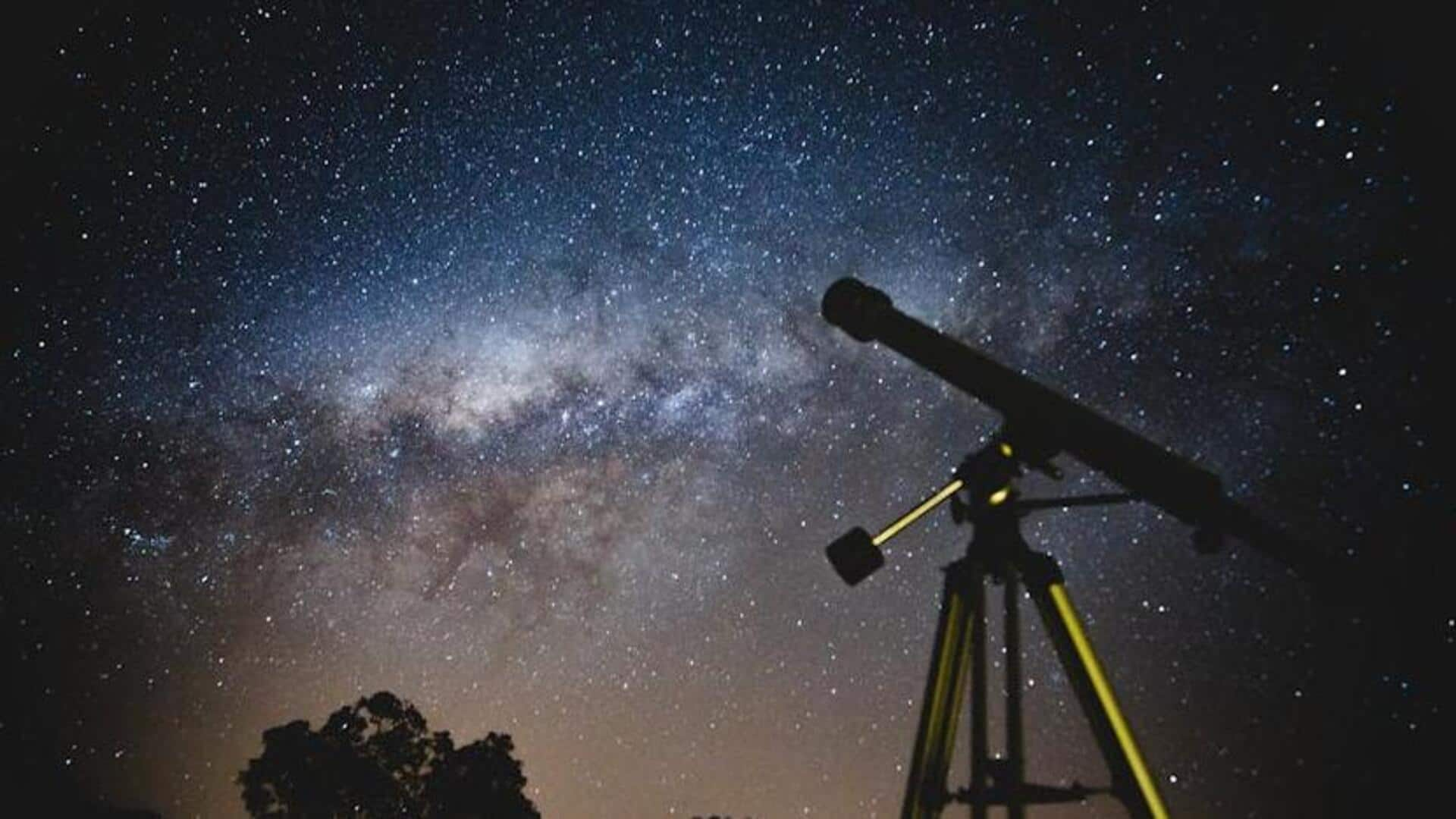
Exploring the stars: The right gear you need
What's the story
Amateur astronomy is a fascinating hobby that allows individuals to discover the universe's wonders from the comfort of their backyards. It's not just about looking at stars; it's an adventure of discovery, learning, and profound joy. This article provides guidance on how beginners can embark on this cosmic journey with minimal equipment and knowledge, bringing the vast cosmos within everyone's reach.
First step
Choosing the right telescope
Choosing the right telescope is the key to a rewarding experience in amateur astronomy. For novices, a six to eight-inch Dobsonian telescope is recommended due to its ease of use, portability, and affordability. These telescopes are reasonably priced and deliver crisp views of the moon, planets, and deep-sky objects such as galaxies and nebulae.
Star gazing
Learning the celestial map
Decoding the night sky is a fundamental skill for amateur astronomers. Begin by familiarizing yourself with major constellations and bright stars. A planisphere or stargazing app is your best friend here. These tools not only help you navigate the sky but also let you plan your observing sessions. Investing twenty minutes to study celestial maps before venturing out can transform your stargazing experience.
Community engagement
Joining astronomy clubs
Astronomy clubs provide beginners with invaluable resources, including access to dark sky sites and guidance from experienced astronomers. For a nominal membership fee, you can not only access high-end equipment but also attend star parties. These social events bring members together to observe celestial phenomena, fostering a sense of community among astronomy enthusiasts.
Deep sky diving
Observing beyond stars
After mastering basic stargazing techniques and becoming familiar with equipment, the next exciting step is observing deep-sky objects such as nebulae, star clusters, and galaxies. These necessitate darker skies away from city lights but reward the observer with breathtaking views even through small telescopes. Compiling an observation list based on seasonal visibility helps in methodically discovering these celestial marvels.
Log keeping
Recording your observations
Maintaining an observation log significantly improves your astronomy experience by providing a record of your progress. Jot down details such as date, time, location, weather conditions, and most importantly, descriptions of what you observe through your telescope. This not only aids in developing observational skills but also creates a cherished personal record of your astronomical journey.